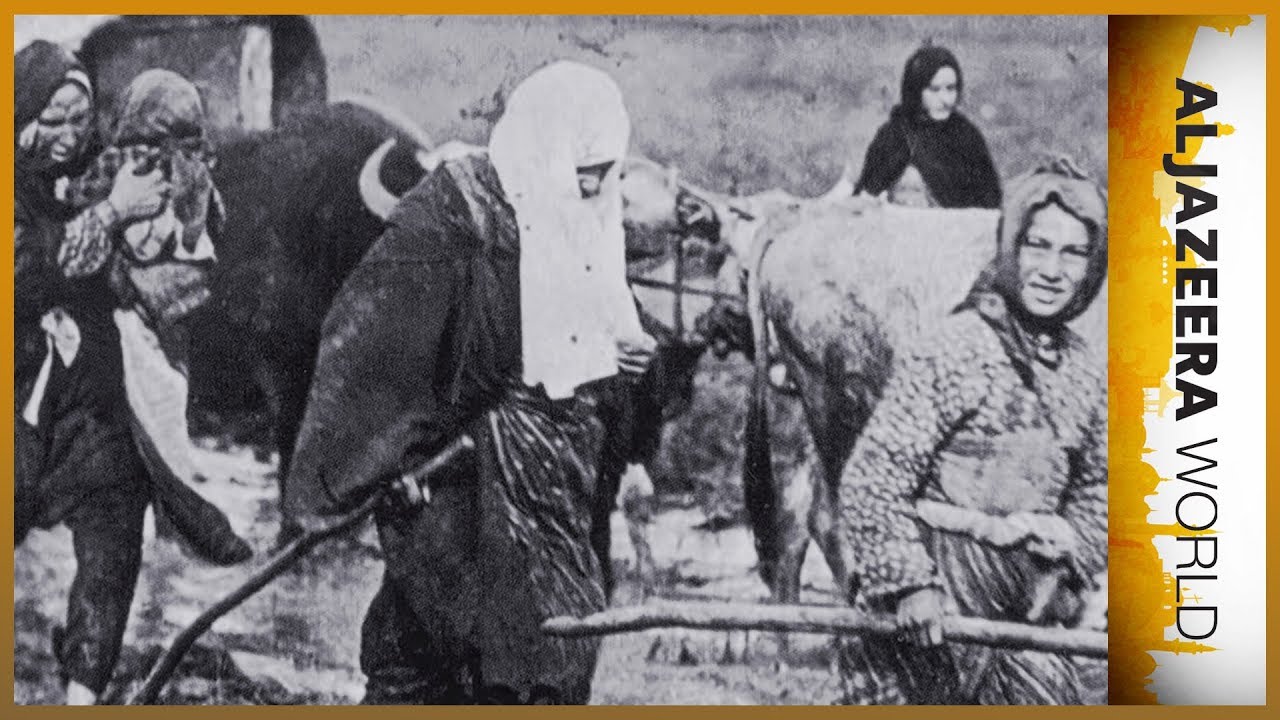🇧🇬 Bulgaria, My Land | Al Jazeera World
In Bulgaria, a country of seven million people and a member of the European Union since 2007, Muslims of Turkish origin comprise about 9 percent of the population.
People from what we now call Turkey have lived in the Balkan region since it became part of the Ottoman Empire more than 500 years ago.
But the fortunes of ethnic Turks changed considerably when Bulgaria declared independence in 1908 and the Ottomans lost nearly all their territories in the Balkan Wars (1912-13).
Two-and-a-half million Muslims died in these wars, according to Justin McCarthy, a professor of history at the University of Louisville. A further one million emigrated. Even after these levels of casualties, Bulgaria remained the country with the highest concentration of people of Turkish origin.
“What happened to the Turks in the Balkans was one of the worst things that has ever happened to human beings,” says McCarthy. “It is one of the greatest disasters that has ever been and yet no one knows about it. No one knows anything about it.”
This film tells this little-known story of the how the Bulgarian Turks suffered discrimination, detention, even mass deportation, over their names, language and cultural identity throughout much of the 20th century – and how they continue to fight for equality in the country they call home.
Successive governments acted in different ways towards the Turkish minority in the last century under a policy of so-called “assimilation” – but under Communist rule, schools were closed, their language was banned and they were forced to change their names to Christian ones and undergo mass baptism.
Resentment led to revolt in the 1980s. Demonstrations became violent, protesters were killed and activists jailed or deported. In May 1989, more than 300,000 ethnic Turks were expelled en masse in what became known as “The Big Excursion”. Turkey ended up closing its borders during the exodus and some families were forced to turn back.
After the fall of Communism, Bulgarian Turks launched the Movement for Rights and Freedom party (MRF) in January 1990 and entered parliament that year. They set about reviving and rediscovering their Islamic and cultural heritage. In 2012, the Bulgarian parliament condemned the previous policies of assimilation.
Nevertheless today, covert discrimination against Bulgaria’s Turks persists as does more blatant racism from extreme nationalists and far-right political parties. Bulgaria’s Turks continue to face challenges as they look to achieve complete religious freedom, education in Turkish, their cultural heritage and to fight for equality in a land they’ve inhabited for generations.
– Subscribe to our channel: http://bit.ly/AJSubscribe
– Follow us on Twitter: https://twitter.com/AlJazeera_World
– Find us on Facebook: www.facebook.com/AlJazeeraWorld
– Follow us on YouTube: http://aje.io/ajw_yt
– Check out our website: http://www.aljazeera.com/




![Private: [ID: 9sSMjmulbSM] Youtube Automatic](https://nezha.pro/wp-content/uploads/2023/08/private-id-9ssmjmulbsm-youtube-a-236x133.jpg)
![私密內容: [ID: vOErbAXbHmo] Youtube Automatic](https://nezha.pro/wp-content/uploads/2023/08/id-voerbaxbhmo-youtube-automati-236x133.jpg)
![私密內容: [ID: 9OKAgo7yn3U] Youtube Automatic](https://nezha.pro/wp-content/uploads/2023/08/id-9okago7yn3u-youtube-automati-236x133.jpg)
![私密內容: [ID: geb2Vb2fbss] Youtube Automatic](https://nezha.pro/wp-content/uploads/2023/08/id-geb2vb2fbss-youtube-automati-236x133.jpg)
![私密內容: [ID: zSXoeqoIwL4] Youtube Automatic](https://nezha.pro/wp-content/uploads/2023/08/id-zsxoeqoiwl4-youtube-automati-236x133.jpg)
![私密內容: [ID: 9c8aHubW7w4] Youtube Automatic](https://nezha.pro/wp-content/uploads/2023/07/id-9c8ahubw7w4-youtube-automati-236x133.jpg)
![私密內容: [ID: 9W4-q3cFxSA] Youtube Automatic](https://nezha.pro/wp-content/uploads/2023/06/id-9w4-q3cfxsa-youtube-automati-236x133.jpg)
![私密內容: [ID: __dHaABgd1E] Youtube Automatic](https://nezha.pro/wp-content/uploads/2023/06/id-dhaabgd1e-youtube-automatic-236x133.jpg)
![私密內容: [ID: ALM6rESu6S4] Youtube Automatic](https://nezha.pro/wp-content/uploads/2023/06/id-alm6resu6s4-youtube-automati-236x133.jpg)
![私密內容: [ID: xJwT02swkuA] Youtube Automatic](https://nezha.pro/wp-content/uploads/2023/05/id-xjwt02swkua-youtube-automati-236x133.jpg)